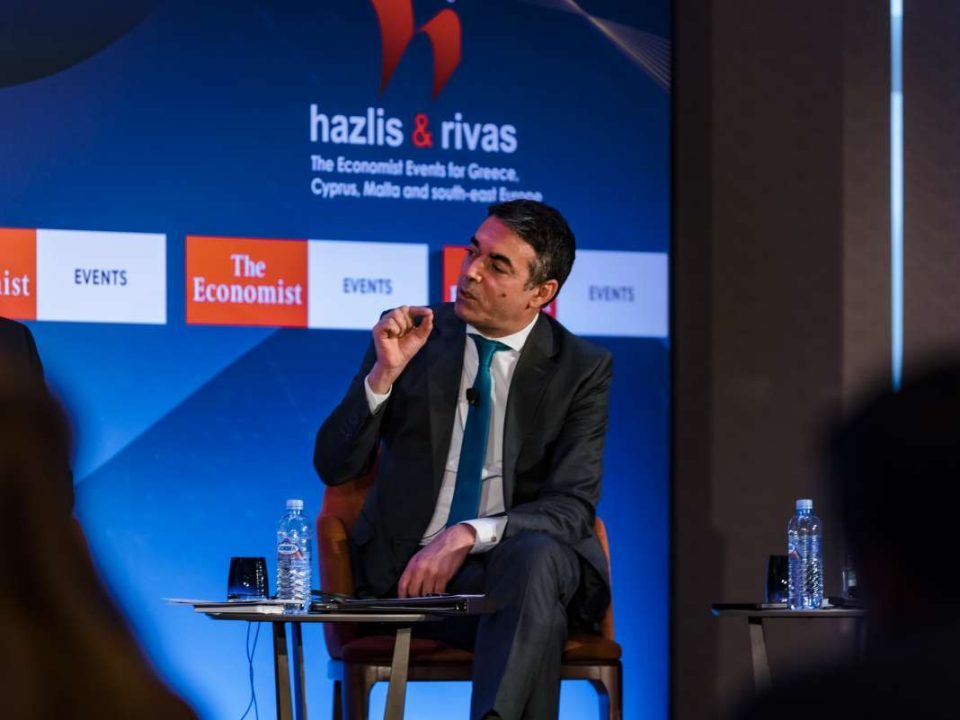The Deputy Prime Minister in charge of European Affairs, Nikola Dimitrov, today addressed a panel as part of the second Western Balkans Summit organized by The Economist titled “Promoting Inclusiveness and Solidarity in Europe” in Skopje on Thursday.
The main focus of the discussion was on the importance of strengthening relations between the European Union and the Western Balkans through a credible EU enlargement policy with the countries of the region, as an issue that is crucial for the future of Europe.
Deputy Prime Minister Dimitrov pointed out that the realization of the vision for a common European future requires a functional accession process and a strong political promise complemented by a concrete step forward.
If enlargement is excluded from the relations between the European Union and the region, then other alternatives like the ones we had in the 1990s come to the fore, which do not bring peace, prosperity and stability. EU’s engagement to make this region truly European, in building strong democracies, the rule of law and tackling corruption is a much more cost-effective investment than neglecting it. To restore the hope of the citizens that the European future is achievable, in addition to a political promise, a concrete step is needed. A complete European Union with the countries of the region means a better and stronger Union, we are part of the European house. We must work to bridge the economic gap and find a mechanism to sustain the transformation process, Dimitrov said.
He added that Macedonia’s European file has the support of all EU member states, with the exception of Bulgaria, which is why he called for responsibility and leadership.
Regarding Macedonia, there is agreement from all EU member states that the conditions for starting accession negotiations have been met and there is no doubt that it is high time to achieve that – even from those who are most strict in this regard. That is why Bulgaria needs to take responsibility and show leadership in building a common future. We need to reach an acceptable solution in accordance with European standards and values, which will respect the dignity of the Macedonian citizens. Being an EU member state does not mean permission to set any conditions – they must be in line with European values, if we are talking about the accession process, said the Deputy Prime Minister.





Comments are closed for this post.